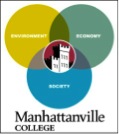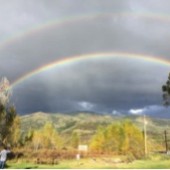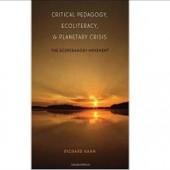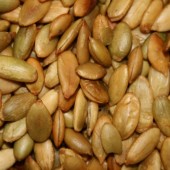
This article explores how teachers can integrate the theory and practice of media literacy education into the teaching of sustainability content. It highlights two lessons, one for elementary students on bottled water choices and one for high school students on climate change and agriculture, detailing lesson construction and execution. The article explains how praxis, the intersection of reflection and action, can be brought to life in classroom settings using contemporary media documents as codes to deepen understanding and to initiate involvement for change.
Continue Reading
Abstract: This article reports on an autoethnography in which eight researchers interrogate their experience in a cohort-based education for sustainability advanced certificate program for evidence of practices that generated hope and agency, and worked against the hopelessness that can come with studying problem as big and seemingly insurmountable as sustainability. They found that learning about and tackling wicked problems as a community of practice undermined debilitating pessimism and generated productive hope and collective action.
Continue Reading
Abstract: In his landmark book Native Science (2000), indigenous educator Gregory Cajete eloquently articulates the motivations and questions that drive this study. For Cajete, effective education of our time entails “finding heart.” Finding heart is an active process within and beyond the person. It is evident in ethically and spiritually grounded work and being that embody meaningful connection to and care for others and nature (p. 288). This article relates to the process of finding heart through sustainability education. It presents a grounded-theory-based study of aspects of sustainability education that motivate or detract from activating hope and agency among undergraduate college students. Specific aspects of conceptual and social engagement, as well as the duration of these effects, are examined in some depth, with the voices of students themselves reflecting the diversity, depth, and power of their experience. The author concludes by suggesting that generating hope and agency among students is a vitally important outcome for sustainability education as part of the larger movement for sustainability. She also suggests curriculum design considerations for effectively activating hope and agency among students.
Continue Reading
In this inspiring photo essay, Rebecca Clausen demonstrates the power of being in the field and learning sustainability in a holistic, hands-on way that starts students down the road to primary production, upon which our future will depend.
Continue Reading
Beth Pollock provides the historical roots and inspiration of Kahn’s Ecopedagogy in Freire and Illich, giving us a good pre-view of what to expect in the book. She finds Kahn’s call for a new kind of pedagogy, founded in these greater thinkers, timely as we work towards establishing educational processes that provide the necessary literacy to face ecological and sustainability issues now and in the future.
Beth Pollock nos indica las raíces históricas y la inspiración por la formulación del “Ecopedagogía” de Richard Kahn, basado en Freire y Illich, dándonos un buen previsto de que los se espera en el libro. Ella encuentra algo pertinente en la llamada de Kahn para una nueva pedagogía, fundada en estos grandes filósofos, mientras trabajamos hacia el establecimiento de un proceso educativo que provee el entendimiento necesario para enfrentar los asuntos ecológicos y de sustentabilidad actualmente y en el porvenir.

In this convincing argument, Tina Evans makes the case for both social and ecological components to sustainability that each of us realize, individually and in community, in the context of our own “lifeway.” She also portrays, in concise terms, the transformational process that she incorporates into her own lifeway as a college professor.
Continue Reading